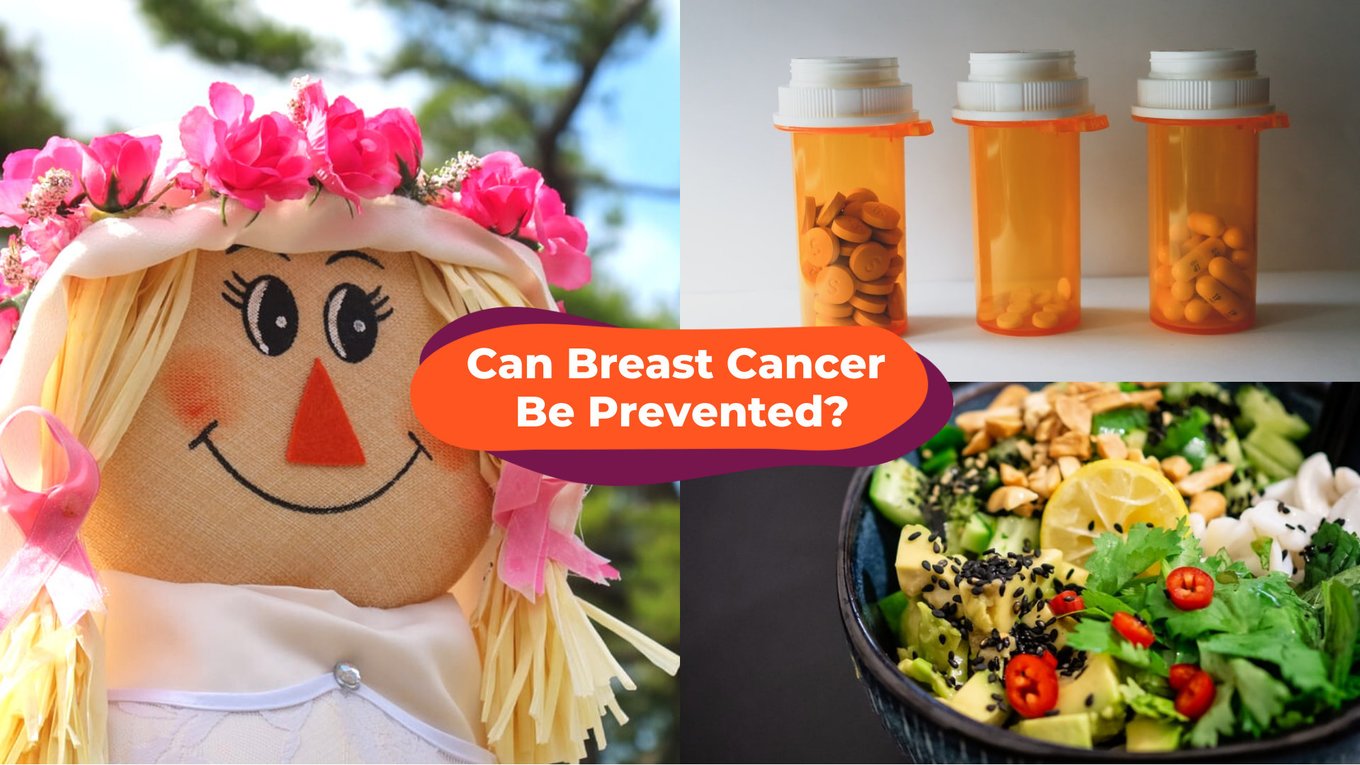Breast Cancer - Can It Be Prevented?
October is the month of pink ribbons and building awareness of a disease that affects about 2.1 million women across the globe every year. According to the World Health Organization, breast cancer contributes to approximately 15% of all cancer deaths among women, and rates are increasing in almost every region globally. In conjunction with Breast Cancer Awareness Month, we think it's important to play our little role in educating women about the disease.
Health organizations have always emphasized this: knowledge and early detection is key to save lives. While there is no sure way to completely prevent breast cancer, there are some things and changes to lifestyle that you can implement in your daily life that may lower your risk to the disease. These steps are actually simpler than you would expect, and are recommended by medical professionals, backed by research that has been done.
In conjunction with Breast Cancer Awareness Month, Shangri-La Hotel Kuala Lumpur has rolled out a dreamy Pink Afternoon Tea Set for the month of October! Available for delivery, dine-in, and takeaway, you can enjoy a pink afternoon with a selection of sophisticated sweet and savoury delights, paired with coffee, tea, or champagne. Enjoy up to 15% off your bill when you book yours on Klook - click here for more information.
8 Ways To Lower Your Risk Of Breast Cancer
1. Watch The Food You Eat
Eat healthy - this is a tip for almost all diseases out there. Medical experts recommend embracing a diet rich in vegetables and fruit, and low in refined carbs, fatty foods, and sugared drinks.
Some foods that may lower your risk of the disease:
- Leafy green vegetables (e.g: spinach, kale, arugula)
- Citrus fruits (e.g: oranges, grapefruits, lemons)
- Fatthy fish (e.g: salmon, sardines, mackerel)
- Berries (e.g: blueberries, strawberries)
- Fermented foods (e.g: kimchi, yogurt, miso)
- Allium vegetables (e.g: garlic, onions, leeks)
- Cruciferous vegetables (e.g: cauliflower, cabbage, broccoli)
- Herbs and spices (e.g: parsley, rosemary, thyme, turmeric)
- Beans and soy-based products (e.g: tofu, tempeh)
Foods that are best to be avoided:
- Fried food
- Red meat
- Processed meats (e.g: bacon, sausage)
- Added sugar
- Refined carbs (e.g: white bread)
- Alcohol
2. Maintain A Healthy Weight
Research shows that being overweight increases the risk of many different cancers, including breast cancer. This happens more commonly to women after menopause. Keep this in mind and try to maintain a body-mass index of under 25 if you can, by practicing a healthy diet and regular exercise.
3. Do Your Exercise
Remain physically active and commit yourself to exercising for at least 30 minutes a day to lower your risk of breast cancer. Scientific shows that physical activity (even if only practiced later in life) reduces overall breast cancer risk by at least 10%. In fact, you don't even need to do anything aggressive, light exercise such as a daily 30-minute brisk walk or a simple home workout can do wonders!
4. Say No To Cigarettes
Research suggests that smoking is associated with an increased risk of breast cancer in some women. This shouldn't come as a surprise, considering smoking has been proven to increase the risk of many diseases including heart illnesses, stroke, and at least 15 cancers. If you're a smoker, it's try to work towards becoming smoke-free for the benefit of your health.
5. Control Your Alcohol Intake
According to breastcancer.org, women who have three alcoholic drinks per week have a 15% higher risk of breast cancer, and the risk goes up by another 10% of each additional drink women regularly have each day. That being said, you're encouraged to limit your alcohol intake (or avoid it entirely) to stay on the safer spectrum of breast cancer risk.
6. Avoid Birth Control Pills
According to mayoclinic.org, a recent study showed an association between hormonal contraceptive use and breast cancer. Research shows that women who take birth control pills have a 20 - 30% higher risk of developing breast cancer as opposed to women who have never taken the pill. Also once you stop taking the pill, your risk will begin to decrease from there onwards. Women are recommended to consult a medical professional or health care provider about the benefits and risks of birth control pills before deciding to take them.
7. Be Vigilant And Do Your Self-Examinations
While this is not much of a prevention but more for early detection, women are always encouraged to be vigilant and educated on breast cancer detection. Learn how to properly conduct self-examination, and regularly check your own breasts for any changes or abnormalities. Keep an eye out for the following, and consult a doctor if needed:
- Dimpling, puckering, or bulging of skin
- An inverted nipple, or a nipple that has changed position
- Redness, soreness, rash, or swelling
- Signs of fluid coming out of one or both nipples
- Lumps felt in your breast(s)
Self-examinations can be done easily and quickly, and most women find it easiest to do so in the shower. The more you do these self-examinations, the easier you'll be able to tell if there are changes in your breasts. Experts recommend doing it once a month so you'll be able to detect irregularities quickly. Find out more about how to self-examine yourself here.
8. Head To The Hospital For Regular Screenings
Regular mammography screenings are recommended especially for women aged 40 and above. While this doesn't help prevent cancer, you'll be able to detect it early when it's most treatable. Sign yourself up for annual screenings at the hospital also if you feel like you're at a high risk of developing breast cancer, here are some examples of high-risk individuals:
- Older women (after menopause, aged 55 or older)
- Family history of breast cancer
- First childbirth after the age of 35
- Personal history of breast cancer
- Diagonosed with certain benign breast conditions
- Women who started menstruating before the age of 12
- Women with dense breasts
So, Can Breast Cancer Be Prevented?
As mentioned before, there is indeed no way to completely prevent breast cancer, but women can always practice healthy living habits and regular checks to reduce risk of developing breast cancer, as well as increase the chances of successful treatment with early detection.
Pink High Tea At Shangri-La Hotel Kuala Lumpur
In conjunction with Breast Cancer Awareness Month, Shangri-La Hotel Kuala Lumpur has rolled out a dreamy Pink Afternoon Tea Set! Available for delivery, dine-in, and takeaway, you can enjoy a pink afternoon with a selection of sophisticated sweet and savoury delights, paired with coffee, tea, or champagne. Enjoy up to 15% off your bill when you book yours on Klook - click here for more information (including full menu).



















![[Updated] Complete List Of Official Nationwide MCO SOP 2021](https://res.klook.com/image/upload/fl_lossy.progressive,q_85/c_fill,w_160,h_104/v1633858858/blog/iso56uzsphmdguixkvzh.jpg)





![[Updated] Complete List Of Official Nationwide MCO SOP 2021](https://res.klook.com/image/upload/fl_lossy.progressive,q_85/c_fill,w_410,h_264/v1633858858/blog/iso56uzsphmdguixkvzh.jpg)





